Plant Life Cycle For Kids – Some Interesting Facts About Plant Life Cycle
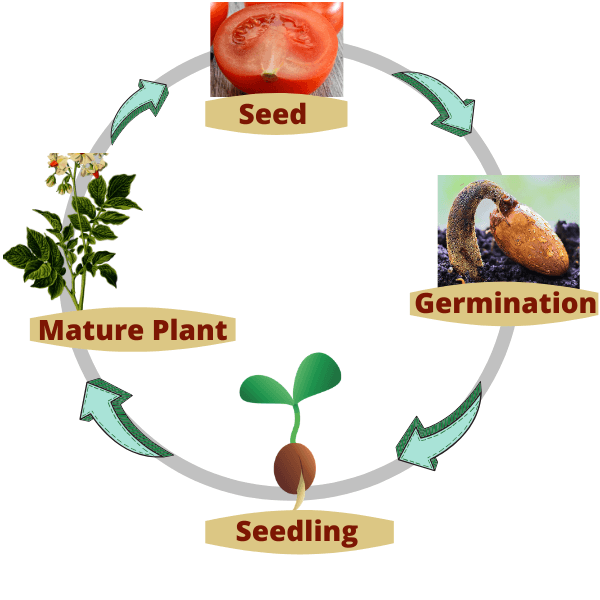
What is Plant Life Cycle?
Plants have a life cycle, just like humans and other animals. The life cycle of a plant describes the different stages of the plant from the beginning of its life until the end, which is from seed to mature plant.
However, not all plants produce seed. Some plants such as fern or mosses produce different kinds of cells called “Spores”. These plant does not produce seeds.
✍ Did You Know?
Bananas contain a natural chemical which can make people feel happy.
Let’s understand more about plant life cycle for kids.
✍ Different Stages of Plant Life Cycle
Seed
Germination
Seedling
Adult Plant
Pollination
Seed Dispersal
➤ 1. Seed –
The plant life cycle starts with a seed. From the outside, seeds are protected by a tough layer, called Outer Coat. But inside every seed, there is a tiny baby plant, known as an embryo. The embryo has a root, shoot as well as the first true leaves.
Seeds wait to germinate until three needs are met:- water, correct temperature (warmth), and a good location (such as in soil).
Seed > Germination
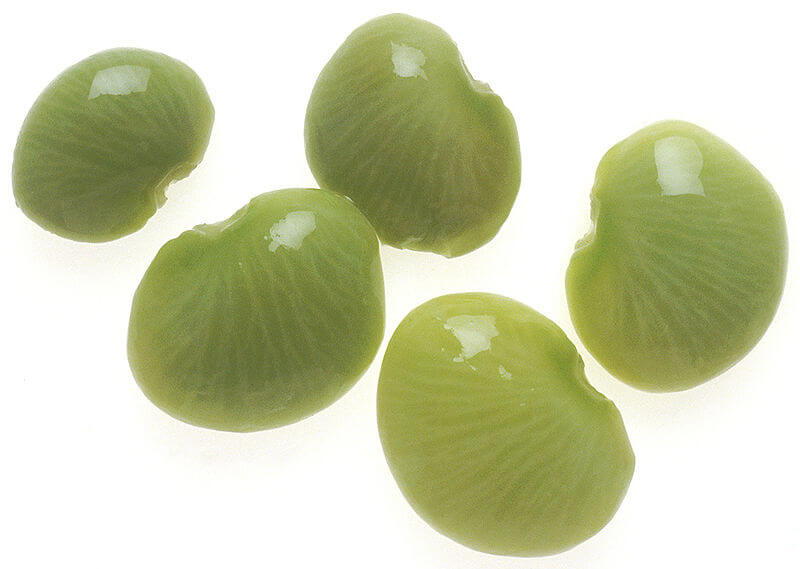
Lima Beans Facts
The next stage is germination. Did you know?
Before a seed germinates, it is DORMANT (means, alive but inactive). For germination, seeds need a suitable condition i.e. water, correct temperature and right location (such as in soil).
When the proper conditions are met for the seed, it will begin to sprout. The first root begins to grow downward. There are few tiny hairs on the roots which absorb water and minerals from the soil.
The process of the sprouting of seed usually after a period of dormancy is called germination.
Seed > Germination > Seedling
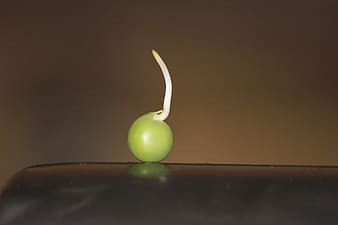
Cocoa Beans Facts
➤ 3. Seedling –
The next step is seedling. A very young plant that grow after germination. It starts growing towards the sunlight. Plants need sunlight, nutrients, water, and air to survive and grow. Photosynthesis helps the seedling grow into a mature plant.
Seed > Germination > Seedling > Adult Plant
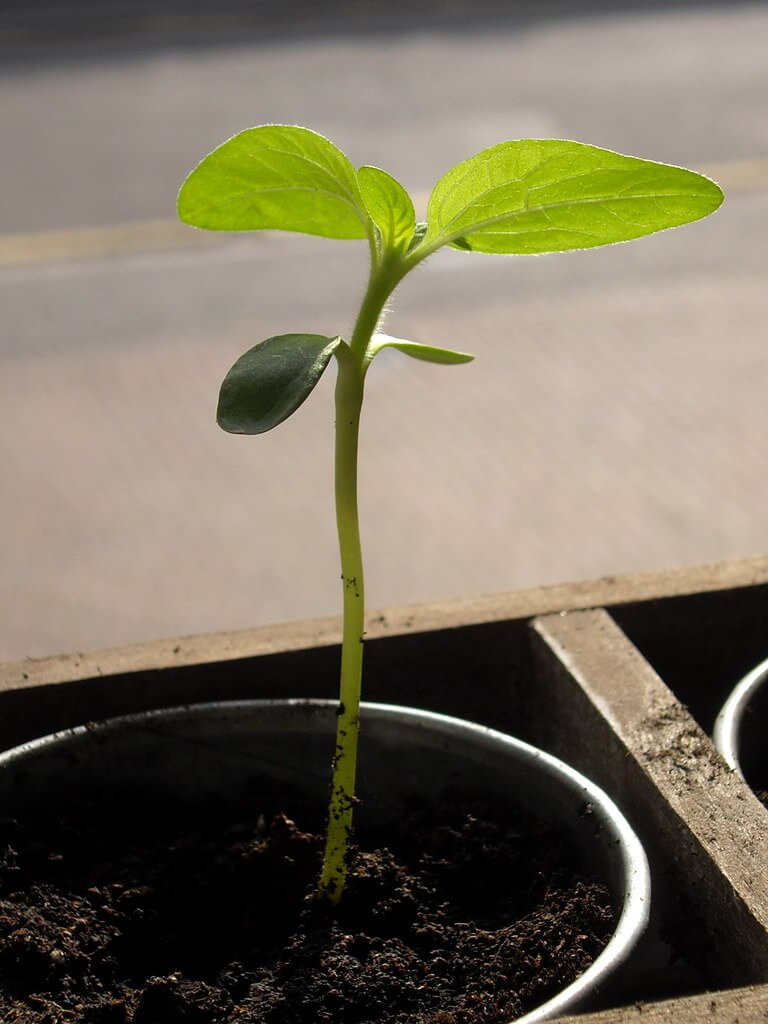
➤ 4. Adult Plant –
When a plant becomes mature, it started to grow flower (in a flowering plant) and flowers produce seeds. A mature plant has leaves, roots, stem, flower and fruits.
Related Article – Parts of Plant
Flowers are the reproductive part of a plant. It makes seeds which in turn make new plants. There are different parts of a flower such as petals, sepals, stamen, pistil etc.
Related Article – Parts of a Flower

➤ 5. Pollination –
Pollination plays a very important role in the plant life cycle. Flowers use pollen to make seeds through a process called pollination. Pollen is transferred by different pollinators, such as birds, butterflies, insects, bees or even wind.
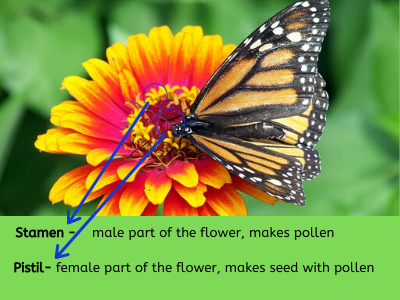
When a butterfly or other insect lands on a flower, dust of pollen sticks to its legs. As the butterfly flies to the next plant, it transfers the pollen to the pistil.
So, when pollen moved from the stamen to the pistil, called pollination. And Once pollination takes place, the seeds start to grow.
➤ 6. Seed Dispersal –
Finally, seeds get dispersed (scattered) away to new places and the plant life cycle starts again. Seeds can get spread by animals, wind, and water.
Did you know?
The fruit of the dynamite tree (also known as Sandbox tree) explodes with a loud bang, firing seeds 100 ft away.
✍ What is Seedless Plants?
The plants which do not produce the flowers and seeds to reproduce are called Seedless Plants. Such as fern or mosses produce different kinds of cells called “Spores”.
Spores are the part of the plants or their remaining. New plants are produced from the spores and continue to grow.
✍ Summary – Plant Life Cycle
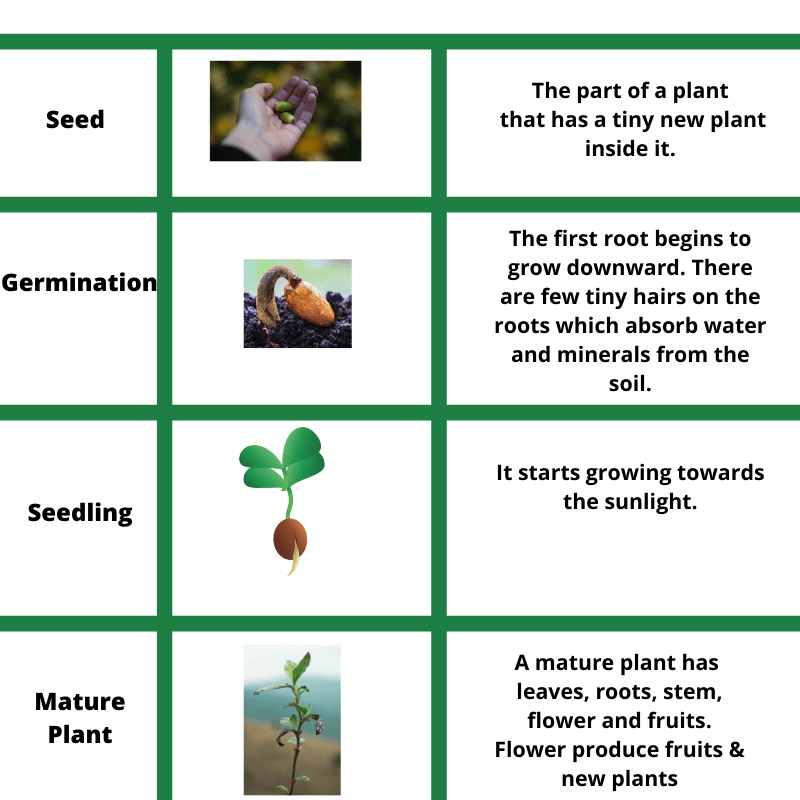
Plants Worksheets
Plant Anatomy
The parts of a plant include seeds, leaves, roots, the stem and flowers. Students label a plant, a tree and, complete a paragraph about how plants grow.
- Parts of a plant chart
- Color the Plant
- Unscramble the letters
- Identify the parts of a plant -cut and paste
- Edible Parts of a Plant
- Name the part that is edible.
- Match the words to the edible part of a plant.
- Complete each sentence
- Parts of a Plant – Function
- Plant Parts and Functions
- Plant parts we eat -1
- Plant parts we eat -2
- Plant parts we eat -3
Plant Needs
Plants need sun, soil, water and air to grow. In these science worksheets, students label, draw and answer questions about what plants need to grow.
- All About Plants -1
- All About Plants -2
- Match each of the following-1
- Match each of the following -2
- All About Plants -3
- Plant growth
Photosynthesis
Sunlight + water + CO2 = plant food
Photosynthesis is the process by which plants turn sunlight, water and carbon dioxide into food for themselves; remember to point out to students that photosynthesis also produces the oxygen that we breathe.
Life Cycle of Plants
From seedling to fruit
Students examine the steps in the life cycle of a plant and an apple tree, from seeds to fruit.
Study Notes for Plants
Concise study note prepared by IITian for better understanding of the topic
Year 3 Science Worksheets (Download and print) and Online Tests
Comprehensive Year 3 Preparatory package targeted towards Maths and Science
